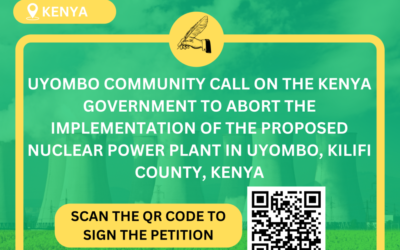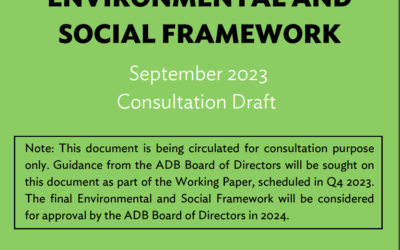By Shirley Kimmayong
Several indigenous organizations in four countries have inked a partnership with the Indigenous Peoples Major Group (IPMG) through its Right Energy Partnership initiative, launched in July 2018, to promote a human rights-based approach to renewable energy development in their indigenous territories.
Joan Carling, IPMG Convenor, said that partners from Kenya, Philippines, Nepal and Chile are on board in ensuring that the just transition from fossil fuel to renewable energy to combat climate change is fully aligned with respect for human rights and climate justice.
“We are looking forward to these partnerships. Because in order to make this change to a rights-based approach to renewable energy development as a solution to climate change, there needs to be a strong pressure on renewable energy companies and investors to abide by their commitment not only “to do no harm” but “to do good” and for States to recognize and protect the rights of indigenous peoples,” says Carling.
She said that through the partnerships, renewable energy projects will be indigenous led and that indigenous peoples have a say on renewable energy projects implemented in their own lands and territories.
The partners include the following: Cordillera Peoples Alliance (Philippines), Ogiek Peoples Development Program (OPDP), Community Empowerment and Social Justice Foundation (CEmSoJ-Nepal), and an indigenous organization in Chile.
The overall goal of this project is to promote a rights-based approach to renewable energy development in indigenous territories to advance the just transition, particularly in Chile, Kenya, Nepal and the Philippines. This project is supported by Global Wallace Fund, New Venture Fund, and the Open Society Foundation.
Indigenous peoples in these countries are adversely affected by renewable energy development, which violate their rights to lands, territories and resources, cultural heritage and right to participate in decision -making, among others.
Prabindra Shakya, Founder/Director at Community Empowerment and Social Justice (CEMSOJ) Network in Nepal said “Partnership in the REP project has enabled us to strengthen our ongoing assistance as well as provide new support to indigenous communities in Nepal that are affected by hydropower projects to assert their rights with the projects and their investors.”
He added that, “With greater awareness of their rights and stronger mobilization skills, those indigenous communities are seeking more meaningful consultations and respect for their free, prior and informed consent in the context of those projects.” Founder/Director at Community Empowerment and Social Justice (CEMSOJ) Network”
In Kenya, John Samorai, Senior Programs Officer of the Ogiek Peoples Development Program (OPDP) stated that, “The REP partnership is bringing together indigenous peoples voices to advocate for right energy projects in Kenya through dialogue, capacity building and collection of case studies on energy projects, mostly renewable projects – solar, wind and geothermal.”
He also said that “Indigenous peoples are gaining understanding of energy projects implementations by various actors and are able to interrogate them and ensure they minimize harm to vulnerable communities and increase the flow of benefit the local communities impacted by the energy projects. We are seeking to be prioritized in energy supply that are generated in our lands at subsidized costs.”
Meanwhile, under the REP project are capacity building and community mobilizations and actions, networking and joint advocacy actions with relevant actors at subnational and/or national levels, as well as outreach and advocacy activities at the global level. In the different countries, initial activities were already conducted.
In Nepal, a site visit and awareness raising workshop with the Majhi indigenous peoples affected by the Sunkoshi Marin Diversion project was done. In Kenya, a partner’s meeting to roll-out the project was accomplished. In the Philippines, consultations with local partners and identified communities were held. The activities in Chile are yet to begin.



0 Comments